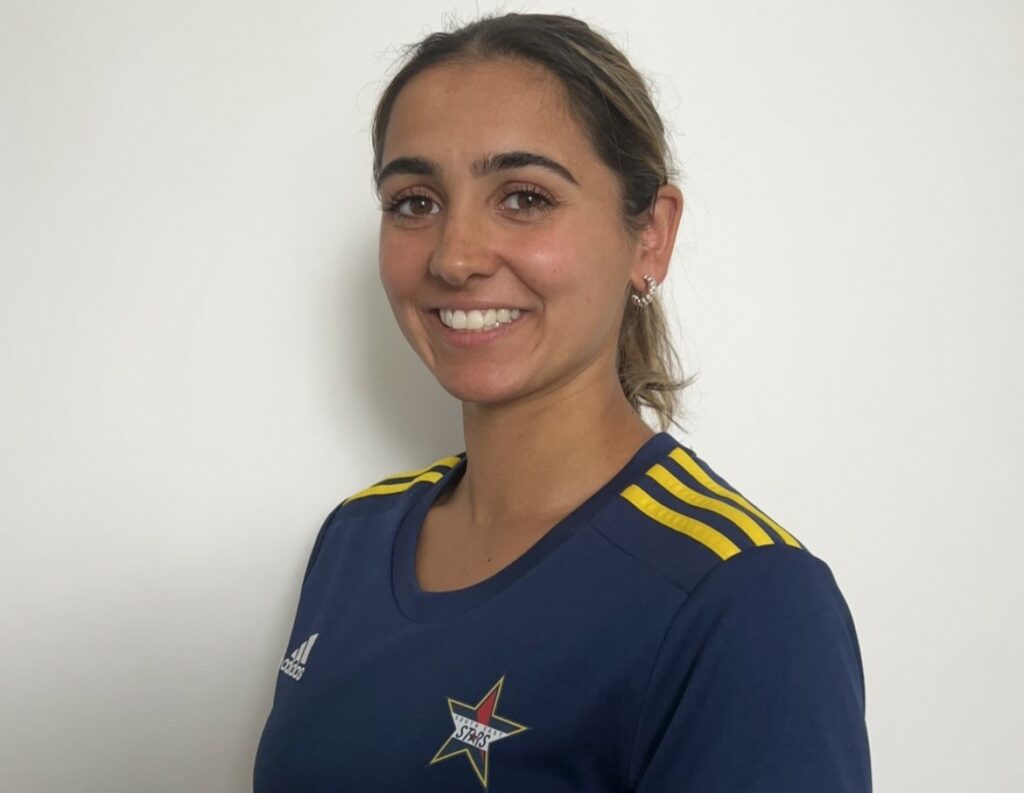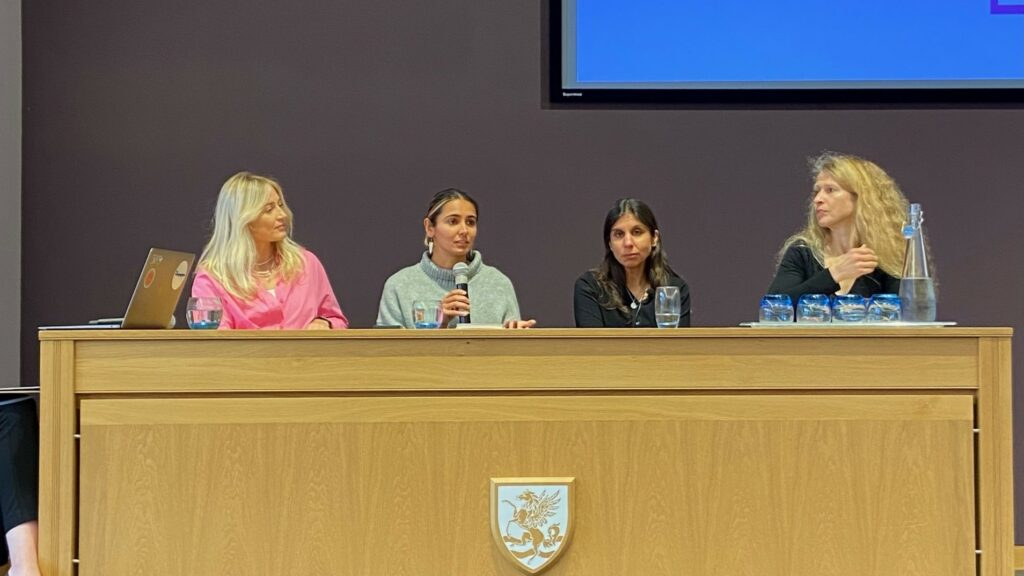South East Stars physiotherapist on REDs and her drive to improve women’s healthcare in cricket
The evidence that the medical system is built by men for men is overwhelming. Health research has historically been conducted by men on the male body, resulting in women being dismissed, mismanaged, and misdiagnosed.
Only recently has this been acknowledged and is starting to be addressed.
In sport, the story is no different. Sporting culture is riddled with damaging myths around women’s health.
The Sports Gazette spoke to the women’s regional cricket physiotherapist for South East Stars, Katie Stanislas, on how her experiences have motivated her to change this in professional cricket.

The COVID-19 pandemic saw many rely on hobbies to escape from the stresses of reality. Stanislas turned to gym training, dedicating increased hours each day. She began to lose weight and, eventually, her period.
“I initially didn’t really think much of it, and I guess didn’t want to think about the potentially damaging consequences of my overtraining,” said Stanislas.
Despite studying a physiotherapy degree at the time, it was not until Stanislas conducted her own personal research that she discovered that the cause was relative energy deficit in sport (REDs).
“As a physiotherapy student, to not have knowledge of that condition felt like a surprising omission from our education. The fact I’d not even heard of this was pretty astounding,” said Stanislas.
Even when REDs was addressed in her final year, Stanislas found this failed to reflect the true magnitude of the issue.
She explained, “REDs is when an athlete is not fuelling correctly for the work that they’re doing. So, the body will shut off less essential mechanisms in order to preserve energy for movement and essential functions.”
Contrary to the deceiving title, the serious long-term consequences on health and sporting performance of REDs can affect anyone regardless of one’s involvement in sport, and may be intentional or unintentional.
“For me, it was very much intentional and led by a disordered attitude towards food,” Stanislas revealed.
In female athletes, REDs can go long unnoticed due to a lack of awareness surrounding the condition. Alarmingly, one of the key symptoms, lost or irregular periods, has previously been normalised in sporting culture.
This event inspired Stanislas to take matters into her own hands, and join the revolution in the healthcare system to empower female athletes and sports staff.

Now, she contributes to the England and Wales Cricket Board’s (ECB) women’s health strategy and has taken the lead of South East Stars’ Women’s Health work, ensuring cricketers are kept safe and listened to.
Within the ECB, Stanislas explains that three strategies, including, screening, monitoring, and education are used to oversee players’ menstrual cycles, pelvic health, and breast health.
Through educational workshops with Kent and Surrey coaches and workshop sessions with the teams, South East Stars aims to empower younger county age group players and senior players with knowledge about their bodies.
“Education is important for the players because our goal is to promote the health of the athlete and to maximise their physical potential,” Stanislas told the Sports Gazette.
“To do that, they need to understand what is normal and what may be abnormal. If they don’t recognise something is abnormal, they’re never going to flag it to a clinician.
“It’s also important they understand the prevalence [of women’s health issues], so they know they’re not on their own.
“This not only equips them with the understanding on this important topic, but aids with peer support and opens the door to important conversations.”
Crucially, though, Stanislas emphasises that the responsibility to educate oneself is not just on the players, but coaching staff too.
“As important as it is that the girls have an appreciation of this, coaches need to as well. They’re so important for diagnosis, for flagging concerns, and to facilitate those conversations in an area that’s very male dominated,” said Stanislas.
“The important takeaway from this is everyone plays a really key role. The education piece is essential for players, coaches and sport medicine staff. It’s important everyone has an understanding [of women’s health issues].”
While SES’s work is limited to the Surrey and Kent area, Stanislas has been working with the ECB to make sure professional, and aspiring, cricketers around the country receive the female-specific care they deserve.
In updating ECB guidelines in the coming years, the goal is the equal provision of healthcare in cricket across all regions.
“I can see tangible positive impacts as a result of the work we’re doing with the Stars, but it is important this is optimised across the regions.” reflected Stanislas.
“[The ECB] are really making an effort to really be at the forefront of female health issues within sport. With the progression of these guidelines, we will be in a really good place.”
Stanislas, who was once let down by a healthcare system built by men for men, is now part of much-needed change that will see it finally serve the needs of professional women in cricket too.
